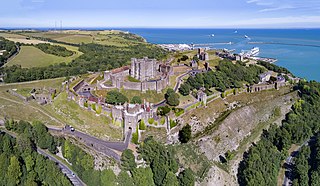Eldred v. Ashcroft, 537 U.S. 186 (2003), was a decision by the Supreme Court of the United States upholding the constitutionality of the 1998 Sonny Bono Copyright Term Extension Act (CTEA). The practical result of this was to prevent a number of works from entering the public domain in 1998 and following years, as would have occurred under the Copyright Act of 1976. Materials which the plaintiffs had worked with and were ready to republish were now unavailable due to copyright restrictions.
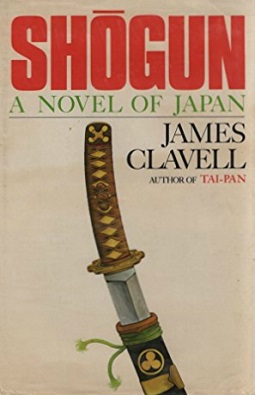
Shōgun is a 1975 novel by James Clavell. It is the first novel of the author's Asian Saga. A major best-seller, by 1990 the book had sold 15 million copies worldwide. Beginning in feudal Japan some months before the critical Battle of Sekigahara in 1600, Shōgun gives an account of the rise of the daimyō "Toranaga". Toranaga's rise to the shogunate is seen through the eyes of the English sailor John Blackthorne, called Anjin ("Pilot") by the Japanese, whose fictional heroics are loosely based on the historical exploits of William Adams.

Charles Howard, 1st Earl of Carlisle was an English military leader and politician who sat in the House of Commons at various times between 1653 and 1660 and was created Earl of Carlisle in 1661.

The White Cliffs of Dover, part of the North Downs formation, is the name given to the region of English coastline facing the Strait of Dover and France. The cliff face, which reaches a height of 106 metres (348 ft), owes its striking appearance to its composition of chalk accented by streaks of black flint. The cliffs, on both sides of the town of Dover in Kent, stretch for 13 kilometres. A section of coastline encompassing the cliffs was purchased by the National Trust in 2016.

The First Barons' War (1215–1217) was a civil war in the Kingdom of England in which a group of rebellious major landowners led by Robert Fitzwalter and supported by a French army under the future Louis VIII of France, waged war against King John of England.
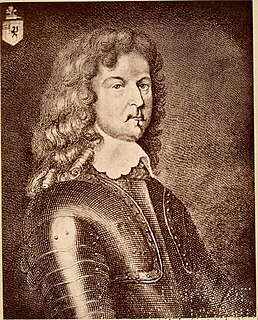
Sir John Boys is best known as the Royalist Governor of Donnington Castle in Berkshire during the English Civil War.

The Second English Civil War (1648–1649) was the second of three wars known collectively as the English Civil War, which refers to the series of armed conflicts and political machinations which took place between Parliamentarians and Royalists from 1642 until 1651 and also include the First English Civil War (1642–1646) and the Third English Civil War (1649–1651), all of which were part of the Wars of the Three Kingdoms.
William Fuller was dean of Ely and later dean of Durham. He was in serious trouble with parishioners and Parliament during the early 1640s.
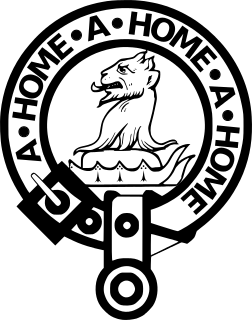
Clan Home is a Scottish clan. They were a Border family of immense power.

The Battle of Stow-on-the-Wold took place during the First English Civil War. It was a Parliamentarian victory by detachments of the New Model Army over the last Royalist field army.
Edward Bamber was an English Roman Catholic priest. He was beatified in 1987.

Gilbert Tailboys or Talboys, 1st Baron Tailboys of Kyme was an English courtier and Member of Parliament during the reign of Henry VIII of England.
Bruno Ryves (1596–1677) was an English royalist churchman, editor in 1643 of the Oxford newsbook Mercurius Rusticus, and later dean of Chichester and dean of Windsor. Both Ryves's Christian name and surname were variously spelled by his contemporaries: Brune, Bruen, Brian, Bruno; and Reeves, Rives, Ryve, Reeve, and Ryves.
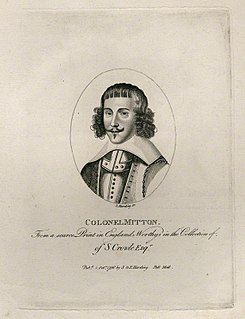
General Thomas Mytton was an English officer in the Parliamentary army during the English Civil War.

Oliver St John, 1st Earl of Bolingbroke, known from 1618 until 1624 as 4th Baron St John of Bletso, was an English nobleman and politician.
Thomas Dacre, 4th Baron Dacre of Gilsland, also Baron Greystoke was an English Member of Parliament and after his father's death a peer and major landowner in the counties of Cumberland, Yorkshire and Northumberland.
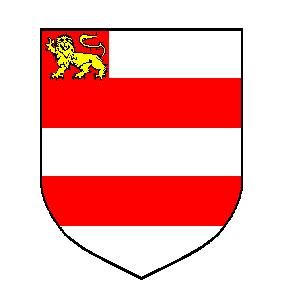
William de Lancaster I, or William Fitz Gilbert, was a nobleman of the 12th century in Northwest England. According to a document some generations later, he was also referred to as William de Tailboys when younger, and then became "William de Lancaster, baron of Kendal", although there is some uncertainty amongst most commentators concerning the exact meaning of the term "baron" in this case. He is the first person of whom there is any record to bear the name of Lancaster and pass it on to his descendants as a family name. He died in about 1170.

"The Tractate Middoth" is a short ghost story by British author M. R. James. It was published in 1911 in More Ghost Stories, James's second collection of ghost stories.
The public domain consists of all the creative works to which no exclusive intellectual property rights apply. Those rights may have expired, been forfeited, expressly waived, or may be inapplicable.

The Dictionary of National Biography (DNB) is a standard work of reference on notable figures from British history, published since 1885. The updated Oxford Dictionary of National Biography (ODNB) was published on 23 September 2004 in 60 volumes and online, with 50,113 biographical articles covering 54,922 lives.
